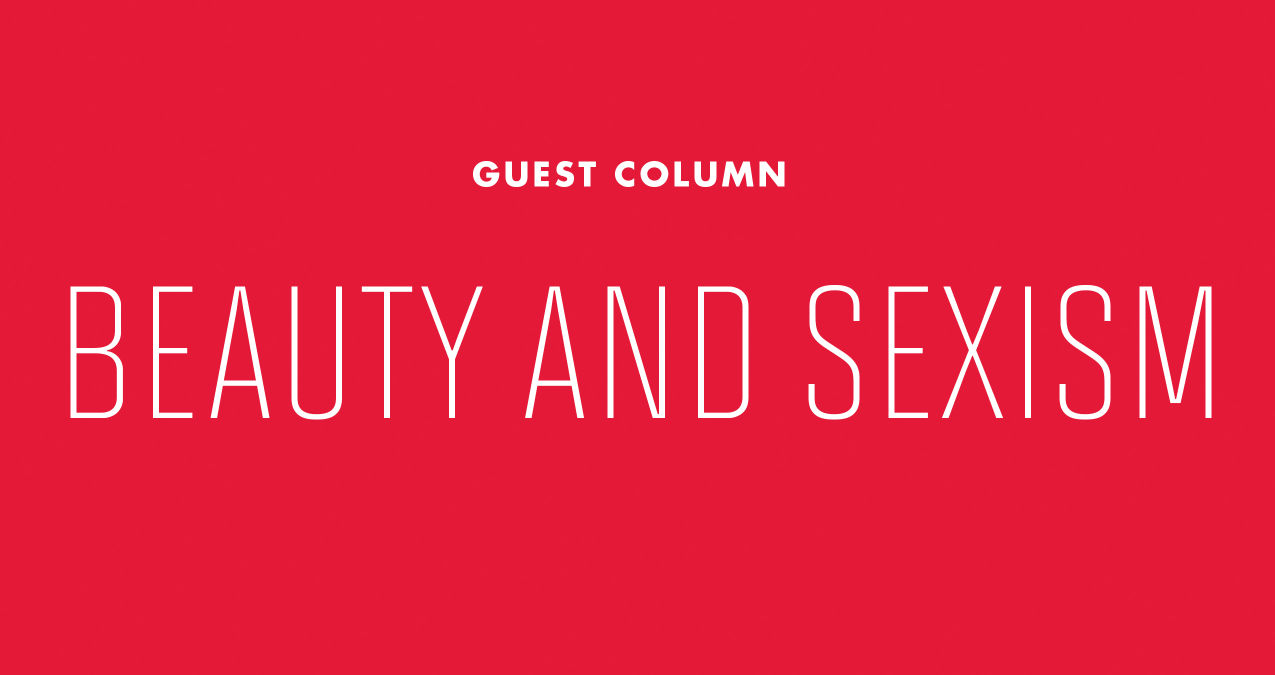
Beauty and sexism
As a result of my studies at this university, I’ve become a recent male convert to feminism. Now I am a changed man — and I see how male privilege pervades all aspects of society, from unequal hiring practices to sexual harassment to concepts of beauty. Yes, I’m going there. I’m going to explain why our conceptualizations of beauty are sexist. In the Western tradition, feminine beauty means something along these lines: A beautiful woman is pretty, delicate and mysterious — and thereby irresistibly charming to men. Each of these components of beauty is sexist to women’s roles collectively as well as detrimental to women’s lives individually.
We can see how an emphasis on prettiness has negatively impacted women. All kinds of media, ranging from pop music to photoshopped magazine covers, have forced women to internalize unrealistic expectations of physical attractiveness. Eating disorders are one salient and all-too-common manifestation on the campus of the idolatry of beauty. On a more fundamental level, women are being valued for their appearances, rather than for their merits, efforts or contributions. And women, more than men, are obliged to change their appearances for the world – this, too, is an unfair and asymmetrical burden.
A woman’s supposed fragility, or delicate nature, has also long been considered beautiful and feminine. It is easy to see how this value of fragility is sexist. If women are socialized to consider themselves fragile, they are also socialized by association to consider themselves helpless, to think of themselves as needing special treatment — in a phrase, to be damsels in distress. While men who treat women more gently, more respectfully or more chivalrously might do so with good intentions, they are in fact reinforcing gender stereotypes that position women in passive roles of lower status and diminished agency.
Finally, even the mysterious aura associated with feminine beauty is an artifact of male privilege. A thing is mysterious if it is unknowable. Men consider women to be mysterious because women do, in fact, live experiences that are inaccessible to men. A man will never know what it is like to be a woman, so the man considers the woman “mysterious.” What is forgotten is that this mystery goes both ways: A man is as mysterious to women as a woman is mysterious to men. However, men have historically positioned themselves as interpretive agents – the doers, the thinkers, the ones in charge. It was only natural, then, that over time men claimed to be the ones who see, while women became the things that were seen, i.e., the objects viewed by male eyes. By associating feminine beauty with “mystery,” the male retains the privilege of being an interpretive agent, while the woman is portrayed as something “other,” something observed by the male and something objectified.
As students at this university, we are in a position to fight gender inequalities. We can change the world for the better — and make it a place where everyone is valued and nobody is threatened, harassed or in any way disadvantaged on the basis of their group membership. To end gender inequality requires recognition of how sexism manifests in unexpected places, including concepts of beauty.
Leon Li is a senior psychology major. He can be reached at lli@umd.edu.



